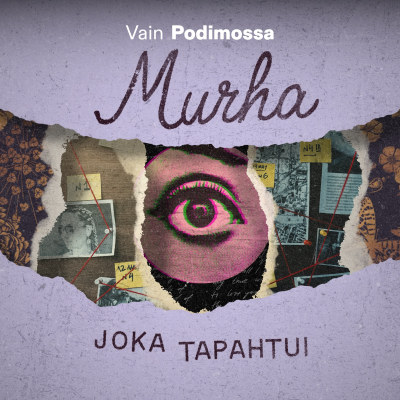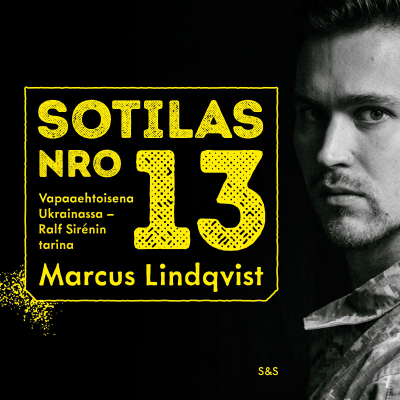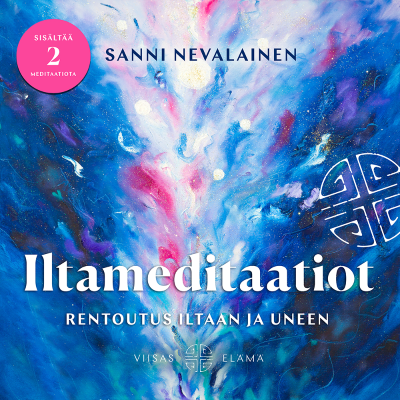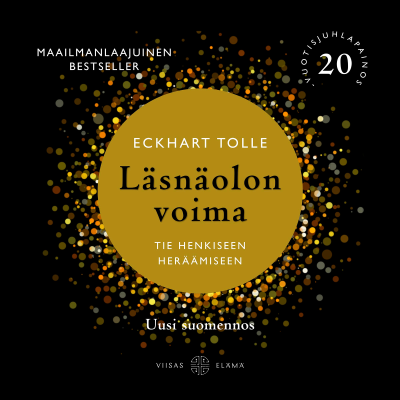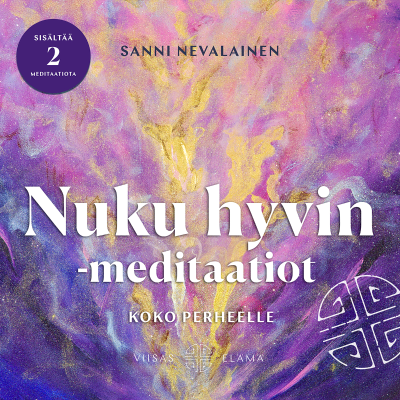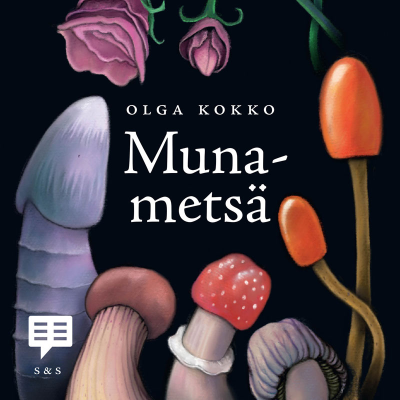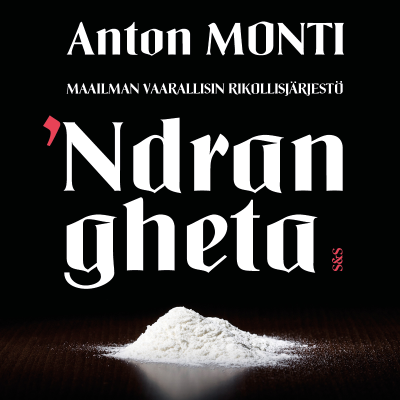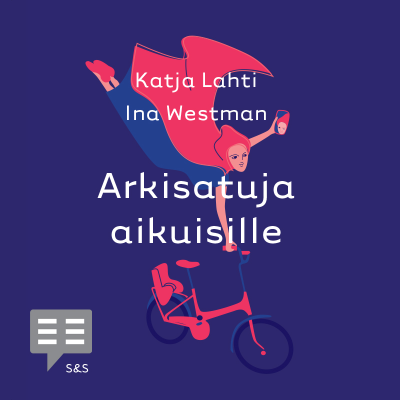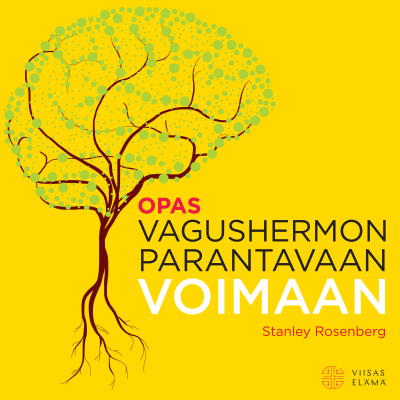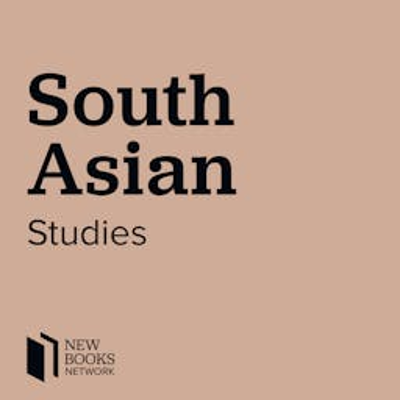
New Books in South Asian Studies
englanti
Henkilökohtaiset tarinat
Rajoitettu tarjous
1 kuukausi hintaan 1 €
Sitten 7,99 € / kuukausiPeru milloin tahansa.
- Podimon podcastit
- Lataa offline-käyttöön
Lisää New Books in South Asian Studies
This podcast is a channel on the New Books Network. The New Books Network is an academic audio library dedicated to public education. In each episode you will hear scholars discuss their recently published research with another expert in their field. Discover our 150+ channels and browse our 28,000+ episodes on our website: newbooksnetwork.com Subscribe to our free weekly Substack newsletter to get informative, engaging content straight to your inbox: https://newbooksnetwork.substack.com/ Follow us on Instagram and Bluesky to learn about more our latest interviews: @newbooksnetwork Support our show by becoming a premium member! https://newbooksnetwork.supportingcast.fm/south-asian-studies
Kaikki jaksot
1337 jaksotChristopher Jain Miller and Cogen Bohanec, "Engaged Jainism: Critical and Constructive Studies of Jain Social Engagement" (SUNY Press, 2026)
The Jain tradition, with roots in ancient India but now spread across the globe, is anything but static and monolithic. In Engaged Jainism, an interdisciplinary cohort of academics and practitioners explore the manifold ways in which Jains and Jain ideas become engaged in social worlds—historically, philosophically, philologically, and anthropologically. Following the legacy of Engaged Buddhism, the groundbreaking volume edited by Christopher S. Queen and Sallie B. King, this volume shows how Jain traditions become engaged in everyday life, puts Jain ideas in dialogue with Western philosophical traditions, and examines the ways in which Jains have maintained Jain identity in their engagement with other religious traditions and cultural influences in the past and present. Across all of these disciplinary approaches, Jainism emerges as a dynamic, protean, and diverse tradition. Learn more about your ad choices. Visit megaphone.fm/adchoices [https://megaphone.fm/adchoices] Support our show by becoming a premium member! https://newbooksnetwork.supportingcast.fm/south-asian-studies [https://newbooksnetwork.supportingcast.fm/south-asian-studies]
Nile Green, "Serendipitous Translations: A Sourcebook on Sri Lanka in the Islamic Indian Ocean" (U Texas Press, 2026)
Sri Lanka has long sat astride the monsoon winds between the Bay of Bengal and the Arabian Sea – a small island at the centre of a very big story. For over a thousand years, Muslim pilgrims, merchants, scholars, and soldiers have passed through “Lanka” or “Sarandib”, leaving traces in Arabic, Tamil, Persian, Malay, Ottoman Turkish, Urdu, Dhivehi, and Sinhala. Serendipitous Translations: A Sourcebook on Sri Lanka in the Islamic Indian Ocean (University of Texas Press, 2026) brings together many of those voices for the first time in English. From medieval travellers marvelling at Adam’s Peak to modern novelists and newspaper editors wrestling with reform, nationalism, and civil conflict. Dr. Nile Green [https://history.ucla.edu/person/nile-green/] holds the Ibn Khaldun Endowed Chair in World History at UCLA. A former Guggenheim Fellow, he is the celebrated author of ten monographs and the editor of seven books and several journal issues, with a particular focus on Islam and the Indian Ocean world. He also hosts the excellent podcast Akbar’s Chamber: Experts Talk Islam [https://akbarschamber.podbean.com/]. Dr. Ahmed AlMaazmi [https://dubaimonsters.academia.edu/AhmedAlMaazmi] is Assistant Professor of History at the United Arab Emirates University. His research explores the intersections of empire, occult sciences, slavery, law, environmental infrastructures, and material culture in the Arabian Peninsula and the wider Indian Ocean world. Learn more about your ad choices. Visit megaphone.fm/adchoices [https://megaphone.fm/adchoices] Support our show by becoming a premium member! https://newbooksnetwork.supportingcast.fm/south-asian-studies [https://newbooksnetwork.supportingcast.fm/south-asian-studies]
Megha Anwer and Anupama Arora, "Screening Precarity: Hindi Cinema and Neoliberal Crisis in Twenty-first Century India" (U Michigan Press, 2025)
Screening Precarity integrates a cultural analysis of film texts and history, industry transformations, and the violence and crises of political economy infrastructures, to study post-liberalization shifts in the Hindi film industry in India. The book investigates Bollywood as a media system that has moved away from the glee and gusto of liberalization in the 1990s to an industry contending with the failures and inadequacies of neoliberalism’s promises, and the ascendency of the material-affective redressals offered by religious ethnonationalism. The monograph examines 19 Hindi-language films released post-2010 to study contemporary India’s precarious public sphere which has been characterized by a pervasive sense of professional-personal insecurity experienced by the vast majority. This is a book about the role of cinema, or cultural texts more generally, in a period marked by incredible insecurity, violence, and the absence of collective political alternatives. Screening Precarity is an intervention in the politics of representation, particularly, of how marginal identities are shaped, scripted, and screened in precarious times. It is also a cultural analysis of how the biggest film industry in the world is embedded in global media networks, and marshals state power and star power, national histories and transnational fantasies, structural impossibilities and individual agency. Megha Anwer is a theorist of literature and visual culture. Her research areas include contemporary postcolonial literature, global cinema, Victorian literature and visual culture. Anupama Arora is a professor of English and Communication, and Women’s and Gender Studies, at the University of Massachusetts, Dartmouth. Dr Priyam Sinha is an Alexander Von Humboldt Postdoctoral Research Fellow at the Institute for Asian and African Studies, Humboldt University in Berlin. Her research interests lie at the intersection of critical media industry studies, disability studies, gender studies, affect studies, production culture studies, and anthropology of the body. So far, her articles have been published in the European Journal of Cultural Studies, Media, Culture and Society; Communication, Culture and Critique; South Asian Diaspora, among others. She is also a regular podcast host at NewBooksNetwork and has been published in public writing forums like the Economic and Political Weekly, FemAsia, Asian Film Archive, among others. More information on her ongoing projects can be found on her website www.priyamsinha.com [http://www.priyamsinha.com/] and you can follow her on https://x.com/PriyamSinha [https://x.com/PriyamSinha] Learn more about your ad choices. Visit megaphone.fm/adchoices [https://megaphone.fm/adchoices] Support our show by becoming a premium member! https://newbooksnetwork.supportingcast.fm/south-asian-studies [https://newbooksnetwork.supportingcast.fm/south-asian-studies]
Deana Heath and Jinee Lokaneeta, "Policing and Violence in India: Colonial Origins and Contemporary Realities" (Speaking Tiger, 2025)
Why does Indias police force, created under British rule, still echo the priorities of a bygone empire? And what is it about this institution, tasked with maintaining the law and order, that has led to a normalization of daily violence? These are the key questions that inform the analyses in this volume by lawyers, academics and activists. Divided into four broad sections, it begins by looking at the origins of the modern police force in the 1860s and demonstrates their role in maintaining socio-cultural, economic and political hierarchies even in post-Independence India. The second section explores how the law and legal infrastructure, as well as the bureaucracy in India, work to effectively facilitate police violence and to further marginalize and criminalize certain groups, like lower castes and Muslims. The penultimate section complicates this picture, examining how police violence is shaped by historical ambivalence towards democracy, the personal and systemic dynamics between police personnel and the accused, and the fraught identity of police in conflict zones like Kashmir, where authority is both granted and withheld by the state. The final section contains interviews of and reflections by prominent critics of police violence, including former Haryana DGP V.N. Rai and Abdul Wahid Shaikh, falsely accused of involvement in the 2006 Mumbai blasts. Questioning its foundational purpose and envisioning pathways to accountability and reform, Policing and Violence in India ignites a long-overdue conversation about the nature of policing in India. Deana Heath is Professor of Indian and Colonial History at the University of Liverpool. She has written widely on issues relating to policing and violence in colonial India, particularly on torture and sexual violence. Her latest book, Colonial Terror: Torture and State Violence in Colonial India, was published by Oxford University Press in 2021. Jinee Lokaneeta is Professor in Political Science and International Relations at Drew University, New Jersey. She is the author of The Truth Machines: Policing, Violence, and Scientific Interrogations in India, published in 2020 by the University of Michigan Press and Orient Blackswan, and Transnational Torture: Law, Violence, and State Power in the United States and India, published by New York University Press in 2011 and Orient Blackswan in 2012. Shailza Sharma is an Assistant Professor at Jindal Global Law School, O.P. Jindal Global University. Learn more about your ad choices. Visit megaphone.fm/adchoices [https://megaphone.fm/adchoices] Support our show by becoming a premium member! https://newbooksnetwork.supportingcast.fm/south-asian-studies [https://newbooksnetwork.supportingcast.fm/south-asian-studies]
Gil Ben-Herut, "Stories of Shiva's Saints: Selections from Harihara's Ragales" (Oxford UP, 2025)
The Kannada language boasts an ongoing literary tradition spanning more than a millennium, with a rich array of social positions and roles, religious traditions, and poetic styles that developed over the dramatic history of the region. Yet translations from premodern Kannada to English have been inconsistent, with only a handful of works that have endured. Stories of Shiva's Saints is the first English translation of selected stories from a thirteenth-century text by Hampeya Harihara that sheds light on the rapid spread of Shiva devotion in the region through edified biographies of figures who lived a few decades earlier, and the stories' historical significance is matched by their gripping plots and emotional expressivity. Learn more about your ad choices. Visit megaphone.fm/adchoices [https://megaphone.fm/adchoices] Support our show by becoming a premium member! https://newbooksnetwork.supportingcast.fm/south-asian-studies [https://newbooksnetwork.supportingcast.fm/south-asian-studies]
Valitse tilauksesi
Rajoitettu tarjous
Premium
Podimon podcastit
Lataa offline-käyttöön
Peru milloin tahansa
1 kuukausi hintaan 1 €
Sitten 7,99 € / kuukausi
Premium
20 tuntia äänikirjoja
Podimon podcastit
Lataa offline-käyttöön
Peru milloin tahansa
30 vrk ilmainen kokeilu
Sitten 9,99 € / month
Premium
100 tuntia äänikirjoja
Podimon podcastit
Lataa offline-käyttöön
Peru milloin tahansa
30 vrk ilmainen kokeilu
Sitten 19,99 € / month
1 kuukausi hintaan 1 €. Sitten 7,99 € / kuukausi. Peru milloin tahansa.


